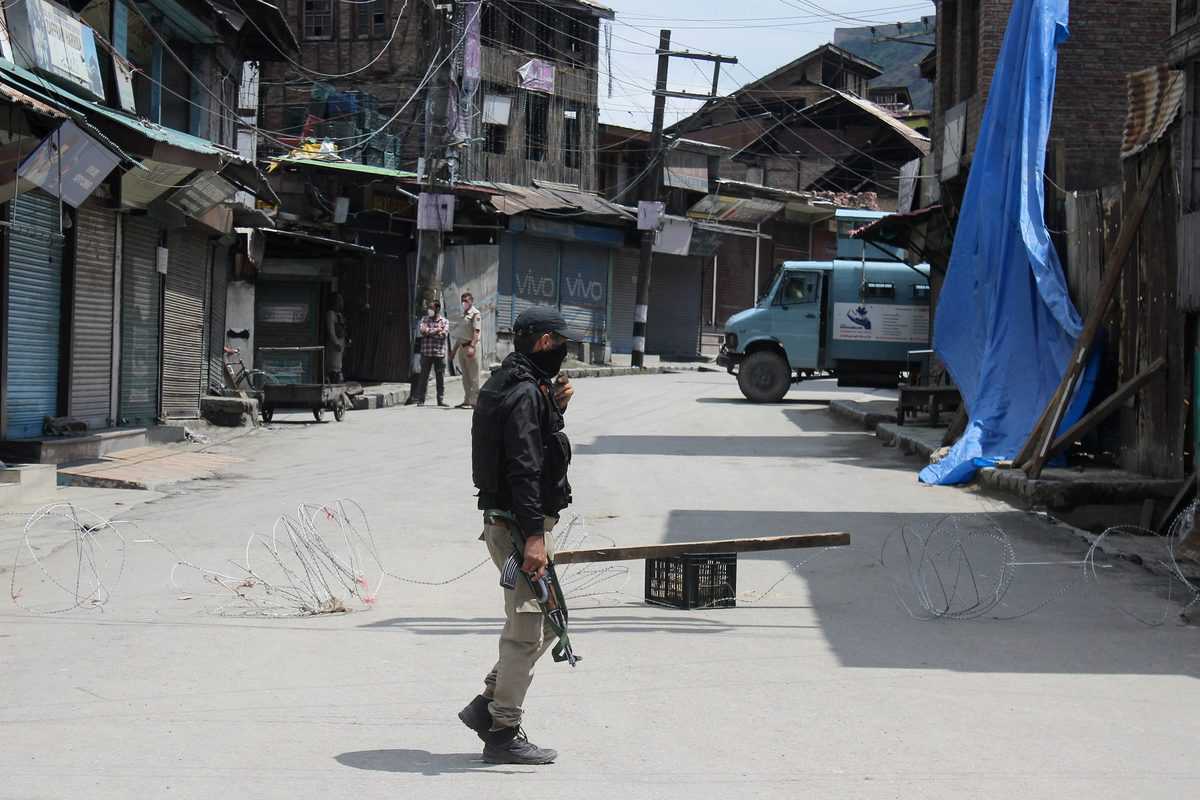By Arun Joshi
The revival of the political process in Jammu and Kashmir has started with the arrival of the Delimitation Commission in Srinagar where it has a heavy schedule of meeting with leaders of various political parties and few other stakeholders in the full democratization of the place that has been without elected Assembly for the past over three years.
While all national and regional parties have nominated their representatives to meet the Delimitation Commission that was constituted in March last year and is now on extension till March 2022, the People’s Democratic Party of Mehbooba Mufti has announced that it will not meet the commission. It alleged that its “ intent was under the question” and also accused of coming with a pre mindset to fulfil the vision of a particular party in J&K, the obvious reference being to the BJP.
PDP is ploughing its lonely furrow despite being aware of the fact that it may put it at odds with the Centre. But it is also knowing it very well that what all it has stated in its letter to the visiting delimitation commission finds resonance in certain quarters in the Valley, where the party had emerged as the single largest party in the Assembly polls of 2014. At the same time, it has created a situation where it stands alone and the other parties would be counted as the rest who willingly or unwillingly met the commission.
Other regional political groups, the National Conference of Farooq Abdullah, Apni Party of Syed Mohammad Altaf Bukhari, People’s Conference of Sajad Gani Lone, have decided to meet the commission to present their point of view and hope to extract something positive in favour of the people. This has to be seen in the context because there is a feeling that the commission is assigned the task to grant more seats to Jammu and tilt the political balance in favour of the Hindu dominated region. Since independence, Kashmir is having major control over the political dimensions because of the larger number of seats in the Valley. In the last Assembly, Kashmir valley had 46 seats as compared to 37 of Jammu. The rest of the 4 seats in the House of 87 were filled by the MLAs from the Ladakh region, which is now a separate UT with no legislative body in its structure.
Although NC had voiced serious reservations, like PDP, a few months ago, about the legality and constitutionality of the Delimitation Commission and it had assertively rejected its existence, but it softened its stand as it is cosying up to Delhi.
Differing roles of the parties of Kashmir have shown them standing in contrasting compartments . It is particularly so in the case of the National Conference and the PDP, both of which are part of their political umbrella grouping, People’s Alliance of Gupkar Declaration or PAGD, PDP has taken a very strident line and shown that it is having a different orientation than the National Conference.
This is a strange political chess board where the two main regional parties NC and PDP, despite being part of the PAGD, are interpreting the democracy in Kashmir in different ways. It appears that NC wants to keep its hopes alive with Delhi and underscore the message that it is going by the revival of the democratic process in J&K. Its participation in the deliberations of the commission both at Srinagar and Jammu indicates that it a partner to what Prime Minister Narendra Modi had stated at the June 24 all-party meeting on Jammu and Kashmir.
Prime Minister had promised that the delimitation exercise would be fast paced and thereafter Assembly elections will follow in quick succession. The Centre has its own ways to measure the success and the situation in J&K. Delhi is looking at a larger picture, where it sees democracy and stability in Kashmir as important for the nation and also to justify its August 5, 2019, actions of doing away with the special status and division of J&K into two union territories, internationally.
Politically, given the sentiment in some of the sections in Kashmir, PDP by boycotting the delimitation commission might have scored some points, but the real test would come when elections would be announced. Then it runs a double risk by its calculations that went behind “ staying away from the delimitation commission.”
Kashmir of today is different internally as also externally. There has been a widely held view that Kashmir has both internal and external dimensions and the two cannot be separated from each other. That was the authoritative word by the then Prime Minister Manmohan Singh at the conclusion of the second round table conference on J&K in Srinagar in May 2006.
Narendra Modi has changed that, he has stuck to the internal dimension. It is now nationally acknowledged fact that the August 5 decisions have settled the Kashmir issue once and for all. Its narrative of J&K being an integral part of India and that Delhi alone is authorized to decide about J&K and its affairs. This was sought to be established by the issuance of new maps of the UT of Ladakh and that of J&K on November 2, 2019.
Pakistan is considered, the main external factor that keeps on raking up the Kashmir issue time and again invoking the attention of few other countries, the ministers in the Modi government keep on telling that the government is working to regain Pakistan occupied Jammu and Kashmir.
It may not be a practical proposition, but it is enough to satisfy the Indian nationalist sentiment that veers around what Modi says. In this prism August 5 is seen as one of the decisive steps, and now with the revival of the political process J&K, Delhi would have many more “internal and integral part” points in its kitty.
Views expressed are personal

